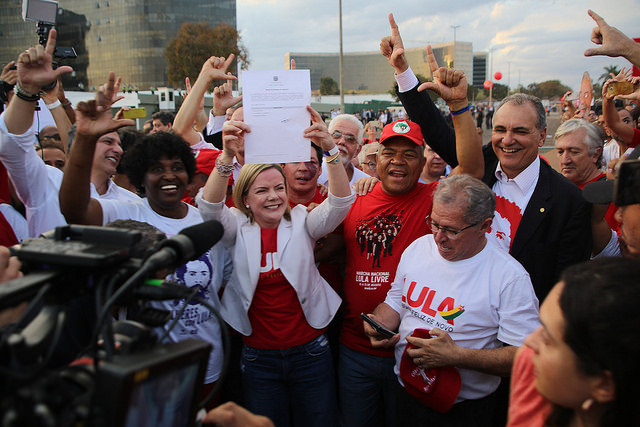Rejecting UN request on Lula would be ‘international embarrassment,’ diplomat says

Specialists in International Law and International Relations say Brazil has a moral obligation to respect the United Nations Human Rights Committee’s request regarding ex-president Luiz Inácio Lula da Silva, who is running for president with the Workers’ Party.
The statement released by the UN panel of independent experts last Friday pointed out that the country should “take all necessary measures to ensure that the author [Lula] enjoy and exercise his political rights in prison.”
The panel’s request was issued on Jul. 27 in defense of Lula, who was sentenced to 12 years in prison in January and has been imprisoned at the Federal Police headquarters since Apr. 7.
After the UN panel issued the request, the Ministry of Foreign Affairs released a statement arguing that the committee can produce recommendations, but they are not “legally binding.”
However, Lula’s defense team argues the decision is mandatory and cannot be questioned, as Brazil has signed, in 2009, the so-called “Optional Protocol to the International Covenant on Civil and Political Rights.” A bill was passed in Brazil’s Congress that same year ratifying the international protocol.
The first article of the protocol establishes that the UN Human Rights Committee has the competence to receive and consider communications from individuals who claim their civil and political rights are being violated in their State.
A diplomat and Political Science professor at the University of São Paulo, Paulo Sérgio Pinheiro says the panel’s decisions must be respected, as made clear by the Supreme Court. “That’s final. You cannot challenge that,” the diplomat said.
Pinheiro also said that not complying with the panel’s request would be “a major embarrassment for the country” in foreign affairs.
“Brazil is a very prestigious country, a serious country in the United Nations, a legitimate interlocutor on all decisions. It’s an embarrassment to have this coup-plotting government tarnishing Brazil’s international reputation,” Pinheiro said.
Political scientist Antônio Roberto Espinosa, a Politics and International Affairs professor at the São Paulo Sociology and Politics School Foundation, said that the UN cannot impose sanctions against States that do not comply with its decisions; nevertheless it is an important moral force.
“It [not complying with the request] becomes a great embarrassment for the country. Of course, the United States will be sympathetic towards this coup government if they ignore the decision. They can gain allies, but also opponents – several other governments that observe the Declaration of Human Rights, which, in a way, oppose the illegal and immoral American hegemony –, such as China, Russia, the whole Muslim world and most of Western Europe,” Espinosa said.
Brazil’s minister of Justice, Torquato Jardim, actually said the UN panel’s decision released on Friday is “inappropriate ideological and political meddling.” The idea that the committee’s statement violates Brazil’s sovereignty, however, is refuted by diplomat Sérgio Pinheiro.
“There is no absolute sovereignty when it comes to human rights since the the Convention on Human Rights. You cannot beat women and children or burn refugee [camps], like what is happening now with the Venezuelans. There is an international limit to that. That is not meddling. Brazil ratified the International Covenant, so it made a commitment to comply with it,” Pinheiro said.
An online petition calling the government to respect the authority of the UN Human Rights Committee has been signed by more than 10,000 people.
Edition: Diego Sartorato | Translated by Aline Scátola
